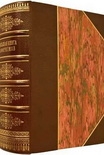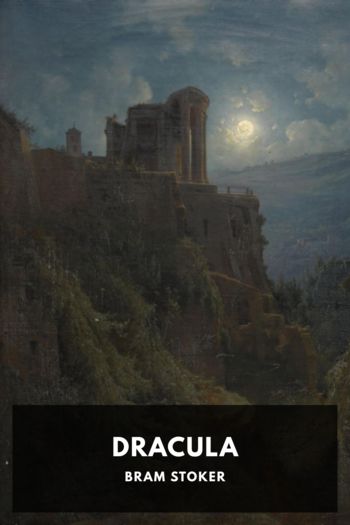American Sherlocks by Nick Rennison (good books to read for 12 year olds .TXT) 📗

- Author: Nick Rennison
Book online «American Sherlocks by Nick Rennison (good books to read for 12 year olds .TXT) 📗». Author Nick Rennison
Egyptian Hall was one of a number of large rooms in the Cosmopolitan Museum, which was part of the educational system of the famous University where some eighteen hundred young men, from all parts of the world, were preparing themselves for their attack on the world. The Cosmopolitan Museum, it might be added, was regarded as burglar-proof, as well as fire-proof. One watchman was employed during the day and another by night. George Young, the day watchman, also acted as a sort of guide, and when the trouble came he admitted that he had not remained in Egyptian Hall continuously; that, at one time, he had been out of the room for fifteen minutes.
It was Dr Randall-Brown, the curator, who first made the astonishing discovery. He had brought a connoisseur from Harvard to look at the treasure.
‘You will notice,’ said the curator, gloating over the prize as only an antiquarian can, ‘that there are three pearls, three amethysts and three diamonds in succession, and after that they come in twos and then in ones.’
But even as he spoke, he realized that this orderly arrangement no longer existed. One of the amethysts had been misplaced. Filled with the gloomiest forebodings, he examined the outside of the case. Casually, all seemed well, but the use of a magnifying glass proved that the twelve screws which fastened the case to the flat table, on which it reposed, had been disturbed.
‘Close the doors,’ cried the curator, nervously, ‘and we’ll look into this business.’
The case was opened and the astounding discovery was made that someone had taken the stones from the priceless Cleopatra necklace and had substituted paste diamonds and imitation gems in their place.
The news, which leaked out in spite of the caution of the trustees, made a tremendous sensation. The telegraph and the cable were called into requisition to beseech the police everywhere, and the learned men of the world, to join in the search for the missing treasure. Dealers in precious stones and pawnbrokers were given the description of the gems taken from the necklace, with instructions to arrest the first person who offered such stones for sale. Their curious size and shape, it was added, would make their identification comparatively easy.
The local police made a determined effort to locate the stolen property and to unravel the mystery of the robbery. Everyone connected with the museum, in any capacity whatever, was subjected to a rigid inquiry but without result. The curator and the trustees wrung their hands in despair. They were estimable gentlemen, but their brows were so high and their intellects so keen that they were absolutely helpless in solving everyday problems of life. The University was becoming the laughing stock of the world. It was inconceivable, said outsiders, that such a crime could be committed without the police speedily detecting the criminal.
It was at this stage of the game that Barnes, going into the Clarion office, met his friend Curley, of that paper, and was given this command: ‘Solve the museum mystery.’ He had been given many difficult orders in the past, but this seemed the most impossible of all. Perhaps they were trying to have some fun with him at the office. ‘If so,’ he said to himself, ‘I’ll put the laugh on the other side.’
That afternoon he called up Dr Randall-Brown and told him that he had been commissioned to solve the mystery. The learned curator smiled through his perplexity and said fervently:
‘Do so, and you’ll win my everlasting gratitude.’
‘But,’ insisted Barnes, ‘I must have your authority to cross-examine the employees and to conduct the investigation in any way I see fit.’
‘You have all that,’ replied the doctor. ‘I’ll see that no obstacles are placed in your way.’
The first thing that Barnes considered was the substitution of the fake necklace for the real one in the day time. He interrogated George Young, the day watchman, at some length, and that officer persisted in his statement that his longest length of absence from Egyptian Hall was for fifteen minutes.
‘Didn’t you go out for luncheon?’
‘No, sir; I carried it with me as usual and ate it at that little desk over in the corner of the room, where I had a full view of the case containing the relic.’
‘Have you had many visitors?’
‘Yes, sir; especially since the necklace came.’
‘How many at one time?’
‘The number varied. Sometimes the room was crowded, and again there would be only two or three.’
The detective reflected that it might have been possible for a trained gang of thieves to do the job in fifteen minutes. One man might have stood guard at the door while a half-dozen confederates unscrewed the case and made the substitution. But, of course, they would be subjected to interruption. Altogether, Barnes felt rather skeptical about his theory.
His next move was to put Adam Markley, the night watchman, through the third degree. The results were far from satisfactory, Adam Markley had been with the museum for fifteen years, and his reputation for integrity was very high. Indeed, he almost took a childish interest in the rare objects that were in his charge. He was an illiterate man, but what he lacked in education he supplied with enthusiasm and devotion to duty.
Dr Randall-Brown shook his head smilingly when Barnes spoke of the night watchman.
‘It’s all right to put him on the griddle,’ he said, ‘but you might as well suspect me as old Adam Markley.’
‘I do suspect you,’ began the detective.
The venerable Egyptologist gave a start of surprise. He spoke sharply:
‘Well of all the cheeky –’
Barnes lifted an interrupting hand.
‘I suspect you and everyone connected with this place,’ he finished. ‘You know,’ he added, ‘I am working on the French principle that you’re all guilty





Comments (0)